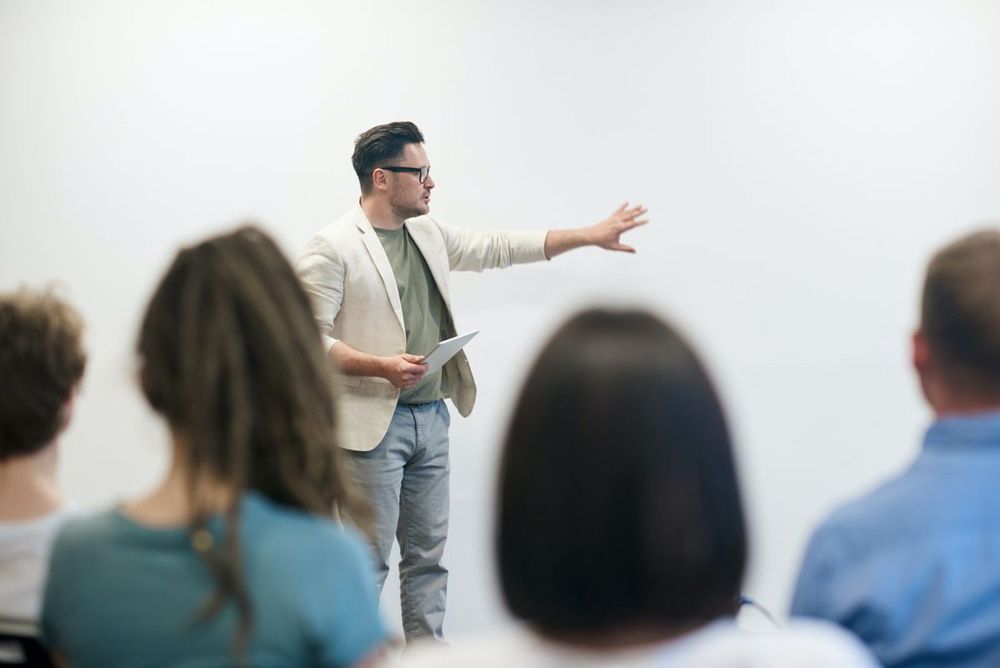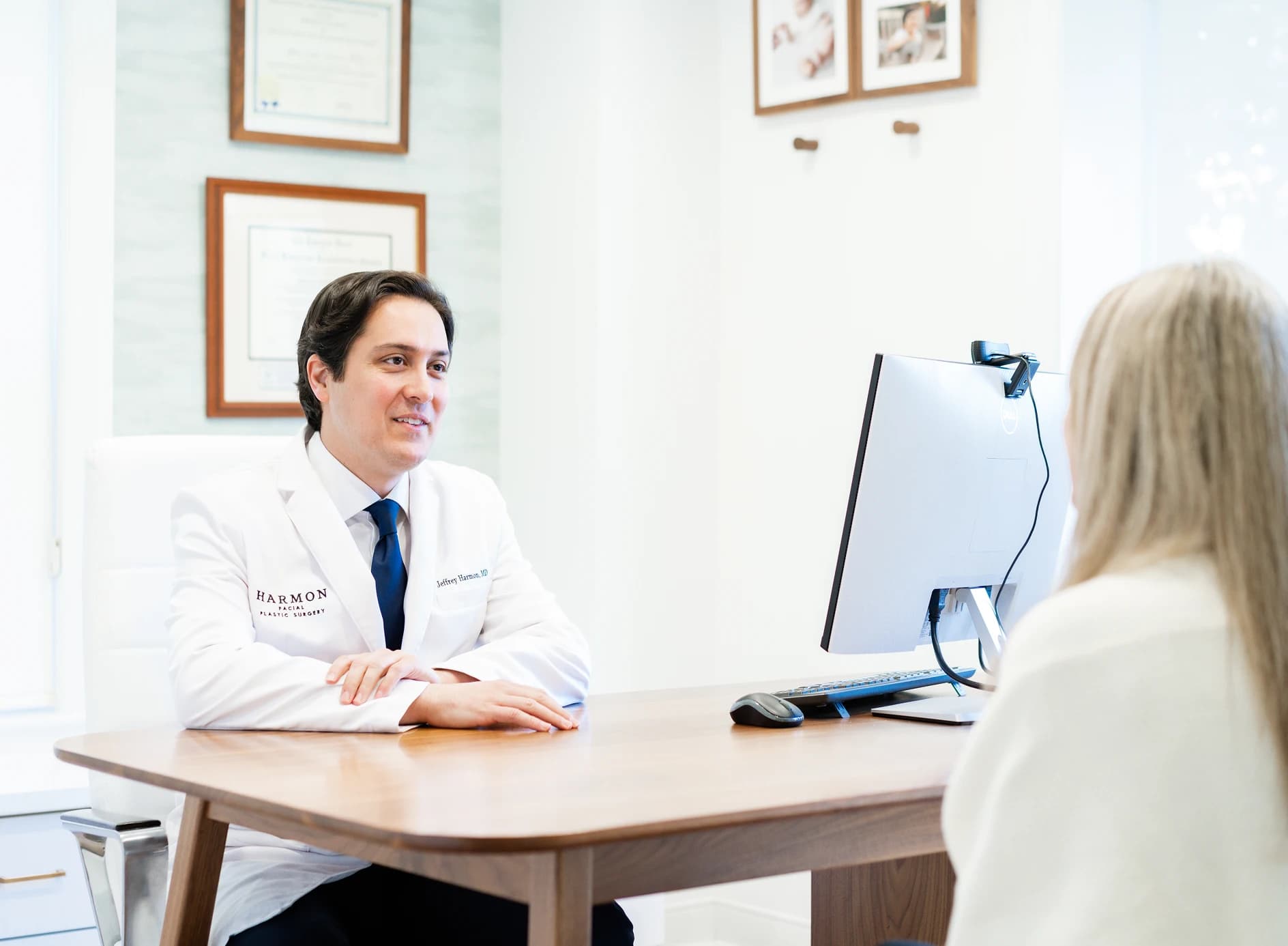
Teaching involves not only the transmission of knowledge but also the organization of knowledge into a digestible framework whose construction imparts a way to organize other information. In other words, teaching involves teaching students how to learn as much as what to learn. It is that process of constructing the “framework” that allows me to organize my knowledge into a logical, organized, evidence-based facial plastic surgery clinical practice in Cincinnati, Ohio. It is important to seek not only a fellowship-trained but also a double board-certified facial plastic surgeon if you have aesthetic concerns about your face and/or neck.
My First Experience Teaching Colors Went Poorly
My mother still enjoys telling the following story about me as a young boy: I was teaching my younger sister the colors. I became bored after teaching her a few colors, explaining that all the remaining colors are “orange.” My mom explains it took months for her to convince my sister that all referred to colors are not, in fact, orange. Fortunately, the damage done to my sister was temporary. She is now a brilliant cardiology pharmacist.
I Developed a Love for Teaching as a Teaching Assistant at Cornell University
I was a teaching assistant in college at Cornell University in a biology class that was student-directed. Lessons and tests were created by us, the teaching assistants. This experience taught me how to put myself in a student’s shoes, to design lessons and exams that not only communicate information but also teach students how to analyze and solve problems more generally. This is partly because all the exams were oral rather than written, forcing not only my students but me to actively engage with the material. This experience gave me the confidence and tools to engage in self-directed learning on some of my other interests, including architecture and foreign policy.
My Self-Actualization Moment as a Teacher Occurred in Doha, Qatar
I later became a biology and chemistry teacher to undergraduate students at Weill Cornell Medical College in Doha, Qatar. It was a job I almost lost. I had applied months prior to my college graduation. I was given a phone interview that went well. However, I heard nothing from the institution all year. I started making plans to return home for a year prior to medical school, unsure what I would do, when I received a phone call from a very unusual number. An individual named Sean Pierson left a voicemail in a very sweet British accent asking whether I would be joining them in Doha in August. I learned they had sent my job offer and follow up emails to the wrong address for months.
I applied what I learned as a teaching assistant to this job, which I held between undergraduate and medical school at the University of Cincinnati. Moreover, I applied what I learned to an entirely new social and cultural context, adapting to these differences.
For example, Ramadan occurred at the height of the summer when temperatures were routinely greater than 100 degrees Fahrenheit. Most students fasted during the day. And because the school ran on an American schedule, classes were held during normal daylight hours. It was obvious the students were retaining very little during these days. I adjusted lessons to account for this and, frankly, expected less from them during this time. They more than made up for this time over the course of the year. My students demonstrated themselves to be very thoughtful and intelligent like the students I taught in college. This experience taught me to meet people where they are, because it may be very different than where I am.
Another example was in helping students write essays in English who are primarily Arabic-speaking. I learned competent writing in Arabic tends to be very long and descriptive as opposed to focused and efficient as in American English. Despite this, it was remarkable how quickly and easily my students adapted to this difference in focus. I also learned about the beauty of the Arabic language from them. My students helped me understand how deeply language guides and organizes our perception of the world. It was another lesson in empathy.
My experience in Doha was a self-actualizing time for me. I knew that whatever the specialty I choose, teaching would be a part of my career.
I Have Applied What I Have Learned About Learning to Teaching Residents
A huge amount of time in residency involves teaching the younger residents and medical students. I made it a point not only to teach the younger residents but also to help them develop a framework for acquiring and applying medical knowledge, because it was important to me not only that the team I was leading as a chief resident would be clinically competent but also that I would help develop younger doctors going out in the world who will be taking care of patients. That is why I still teach the residents at the University of Cincinnati today, years later.
The Opportunity to Teach Facial Plastic Surgery is a Gift
The opportunities I have had to teach have not only allowed me to remain up to date on the medical literature but has also affected how I consult with patients. I respect their intelligence and desire to be well-educated on how to best address their aesthetic concerns. I believe it is reflected in our consultation. It is important to meet patients where they are. It is in placing myself in the shoes of patients that I truly understand how to alleviate their concerns and answer their questions.
Trust Your Face to a Facial Plastic Surgeon
It is important to seek a fellowship-trained specialist in plastic surgery of the face and neck when you have concerns about your face or neck.
Why Choose Dr. Harmon
- The mission of Harmon Facial Plastic Surgery is to help people along their journey towards self-confidence, to feel good about feeling good.
- Dr. Harmon is a double board-certified facial plastic surgeon.
- Dr. Harmon values making patients feel welcomed, listened to, and respected.
- Dr. Harmon graduated with honors from Cornell University with a Bachelor of Science degree in molecular biology.
- Dr. Harmon earned his medical degree from the University of Cincinnati.
- Dr. Harmon underwent five years of extensive training in head at neck surgery at the prestigious residency program at the University of Cincinnati.
- Dr. Harmon then underwent focused fellowship training in cosmetic facial plastic surgery through the American Academy of Facial Plastic and Reconstructive Surgery (AAFPRS) with the world-renowned surgeon, Dr. Andrew Jacono, on Park Avenue in New York City.
Request a Consultation
Request a consultation with Dr. Harmon at Harmon Facial Plastic Surgery in Cincinnati. Visit our clinic. You will learn more about Dr. Harmon’s credentials, style, and approach. Build a relationship with our dedicated team. Do not stop at searching “plastic surgery near me.” Get in touch with us to learn more!
Disclaimer
This blog post is for educational purposes only and does not constitute direct medical advice. It is essential that you have a consultation with a qualified medical provider prior to considering any treatment. This will allow you the opportunity to discuss any potential benefits, risks, and alternatives to the treatment.

Book Your Consultation
Take the first step toward enhancing your natural beauty by scheduling a personalized consultation with Dr. Jeffrey Harmon. As a double board-certified facial plastic surgeon trained by the pioneer of the extended deep plane facelift, Dr. Harmon offers expert guidance and care. Whether you're considering surgical or non-surgical options, our team is here to support your journey to renewed confidence.